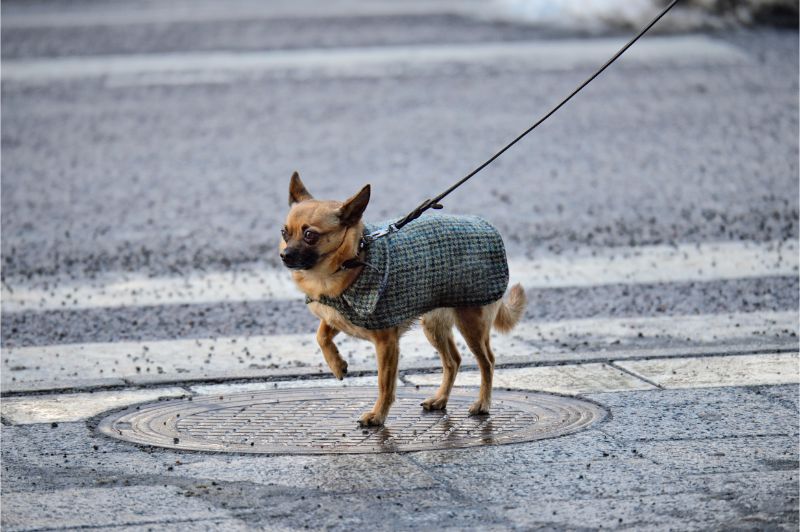On Thin Ice: Winter Paw Care To Protect Your Pet

If you have dogs, staying indoors just because old man winter is rearing his ugly head is not an option. Your dogs need to answer the call of nature, stretch their legs, and occasionally get outside and play!
You’ve probably given some thought about how to best keep your dog safe from winter weather, but have you given any thought to their paws? Sensitive paw pads need extra protection in the wintertime when freezing temperatures, snow, and ice abound.
Fortunately, there are some easy and smart ways to practice good winter paw care. Animal Medical Hospital & Urgent Care takes you through the basics!
Raring to Go
Cold surfaces, snow, and ice can do a number on your dog’s paw pads, leading to cracks, blistering, and bleeding. One way to protect their feet is to invest in a pair of booties. You may think these are ridiculous, but they can minimize dryness and cracking, prevent injury, and offer extra warmth.
Train your dog to wear booties inside first. When your dog is more comfortable, start with a short walk outside. Offer plenty of praise and treats, and you’ll be able to gradually work up to longer and longer jaunts.
The Paws Have It
For great winter paw care, take note of the following tips:
- To prevent ice and snowballs from getting caught in your pet’s toes, trim the hairs in between toes regularly.
- Prevent torn nails and lacerations by keeping your pet’s toe nails trimmed. We can show you how to trim your pet’s nails, or call us to schedule an appointment with one of our technicians.
- Use a product such as Musher’s Secret, which is a paw balm that uses all natural, nontoxic waxes and oils and is designed to protect sensitive paw pads from the elements. Please remember to wash off all products after your pet comes inside.
- After walking your pet, dip her feet in lukewarm water and dry them completely with a towel. This will minimize any ice, salt, or chemicals she may have picked up on her feet while out and about.
The Importance Of Winter Paw Care
Salt, ice, and chemicals can cause problems like soreness and irritation of the paws, but if your pet grooms them off, they can cause even worse issues internally.
We recommend using pet-safe deicers on your property, but there is no guarantee that your neighbors will do the same. When out walking, make sure to steer clear of areas that look heavily treated, and don’t let your pet drink from puddles or ice melt.
If you notice that your pet’s paws are causing any discomfort, or if they look swollen, irritated, dry, or cracked, please give us a call right away. A bit of winter paw care preparation and planning can go a long way towards an enjoyable, and safe, cold season for both your pet and you!
